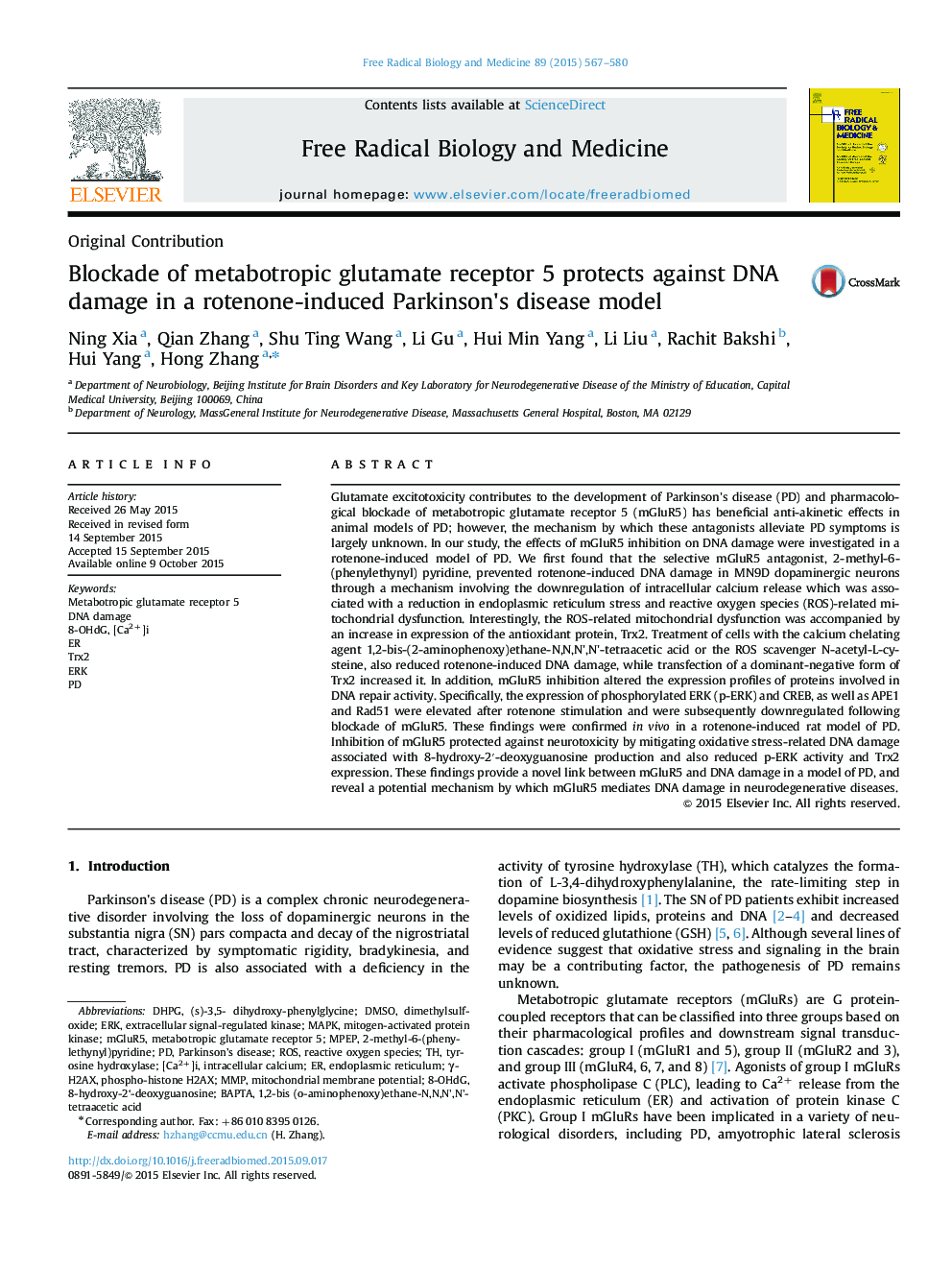| Article ID | Journal | Published Year | Pages | File Type |
|---|---|---|---|---|
| 8268669 | Free Radical Biology and Medicine | 2015 | 14 Pages |
Abstract
Glutamate excitotoxicity contributes to the development of Parkinson's disease (PD) and pharmacological blockade of metabotropic glutamate receptor 5 (mGluR5) has beneficial anti-akinetic effects in animal models of PD; however, the mechanism by which these antagonists alleviate PD symptoms is largely unknown. In our study, the effects of mGluR5 inhibition on DNA damage were investigated in a rotenone-induced model of PD. We first found that the selective mGluR5 antagonist, 2-methyl-6- (phenylethynyl) pyridine, prevented rotenone-induced DNA damage in MN9D dopaminergic neurons through a mechanism involving the downregulation of intracellular calcium release which was associated with a reduction in endoplasmic reticulum stress and reactive oxygen species (ROS)-related mitochondrial dysfunction. Interestingly, the ROS-related mitochondrial dysfunction was accompanied by an increase in expression of the antioxidant protein, Trx2. Treatment of cells with the calcium chelating agent 1,2-bis-(2-aminophenoxy)ethane-N,N,N',N'-tetraacetic acid or the ROS scavenger N-acetyl-L-cysteine, also reduced rotenone-induced DNA damage, while transfection of a dominant-negative form of Trx2 increased it. In addition, mGluR5 inhibition altered the expression profiles of proteins involved in DNA repair activity. Specifically, the expression of phosphorylated ERK (p-ERK) and CREB, as well as APE1 and Rad51 were elevated after rotenone stimulation and were subsequently downregulated following blockade of mGluR5. These findings were confirmed in vivo in a rotenone-induced rat model of PD. Inhibition of mGluR5 protected against neurotoxicity by mitigating oxidative stress-related DNA damage associated with 8-hydroxy-2â²-deoxyguanosine production and also reduced p-ERK activity and Trx2 expression. These findings provide a novel link between mGluR5 and DNA damage in a model of PD, and reveal a potential mechanism by which mGluR5 mediates DNA damage in neurodegenerative diseases.
Keywords
TRX2MMPPhospho-histone H2AXmGluR5MPEPDHPGERK8-OHdGγ-H2AX2-methyl-6-(phenylethynyl)pyridineDMSOMAPKROS[Ca2+]iDNA damageBAPTAParkinson’s diseasetyrosine hydroxylaseDimethylsulfoxideendoplasmic reticulumMitochondrial membrane potentialmitogen-activated protein kinaseIntracellular calciumextracellular signal-regulated kinaseReactive oxygen speciesmetabotropic glutamate receptor 5
Related Topics
Life Sciences
Biochemistry, Genetics and Molecular Biology
Ageing
Authors
Ning Xia, Qian Zhang, Shu Ting Wang, Li Gu, Hui Min Yang, Li Liu, Rachit Bakshi, Hui Yang, Hong Zhang,
